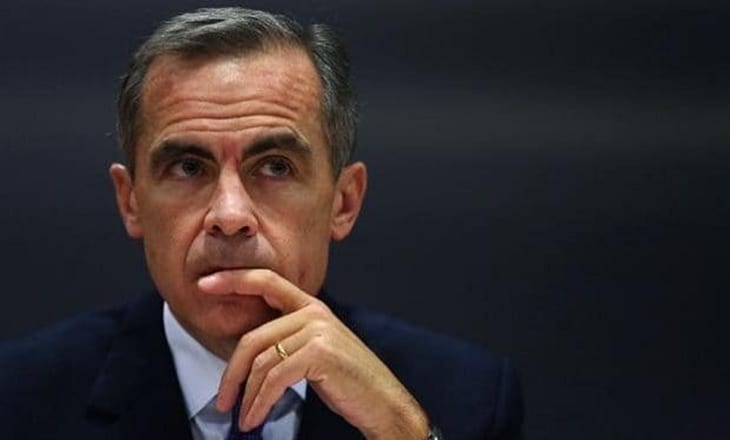The following article was written by Ipek Ozkardeskaya, Senior Market Analyst at FCA regulated broker London Capital Group Holdings plc (LON:LCG).

Ipek Ozkardeskaya, LCG
The Bank of England (BoE) will meet on Thursday and is expected to raise the interest rate by 25 basis points to 0.50%.
The move is considered as a rectification after the BoE lowered the UK’s rate by 25 basis points following the Brexit referendum to provide convenient financial conditions to the UK businesses through a period which was not going to be easy. Fifteen months after the referendum, the Brexit negotiations have barely progressed, the uncertainties loom, but the significant depreciation in the pound caused an uncontrollable upside pressure in consumer prices and the BoE has begun to grudgingly accept the need for intervention.
British inflation hit 3% in September
The inflation has been a major caveat to BoE Governor Mark Carney’s efforts to maintain a loose monetary policy in the UK. The headline inflation hit the 3% level in September, which is considered as significantly higher from the BoE’s mandate target of 2%.
The BoE has tolerated rising inflationary pressures anticipating that slower wages growth and lower purchasing power would temper the upside pressures in consumer prices. However, British households’ demand didn’t cool down fast enough. Higher inflationary pressures leave the BoE with no choice except from raising the bank rate.
Rate hike is not enough to motivate GBP-bulls
A 25-basis-point rate hike is priced in with 87.7% probability and may not motivate the GBP-bulls without a solid accompanying statement. Investors need to hear more commitment from the BoE to keep the GBPUSD above the 1.30 and the EURGBP below the 0.90 mark.
The BoE should at least leave the door open for more action for the sake of a stronger pound, which in turn could have a cooling effect on inflation. Some analysts believe that a second hike could be useful to halt the price pressure by February and a third action may eventually be needed thereafter, depending on the price dynamics.
It is important to note that the BoE’s will is to keep the pound at a balanced level, not too low, but not too high either to take advantage of the improved competitive advantage that an affordable pound has to offer. Especially if the UK walks out the EU without a transitional deal, the UK exports may need a relatively cheap pound to fill the Brexit gap and to compensate for any deterioration in the budget.
What happens if the BoE bypasses this month?
If the BoE decides to skip this month’s meeting and wait another month before raising the interest rates, the pound market could be significantly squeezed lower. A softer pound is not in BoE’s interest, given that the pound depreciation has been the major driver for the higher inflation since the Brexit decided to leave the European Union.
In addition, the difficult Brexit negotiations and political tensions at the heart of the UK’s parliament increase the sell-off risks in the pound markets. Therefore, a no-action could trigger an undesired, aggressive unwind in the GBP long positions and boost the inflation expectations along with the probability of a December rate hike.
The probability of a December action is currently priced in at 88.8%.
The information and comments provided herein under no circumstances are to be considered an offer or solicitation to invest and nothing herein should be construed as investment advice. The information provided is believed to be accurate at the date the information is produced. Losses can exceed deposits.
